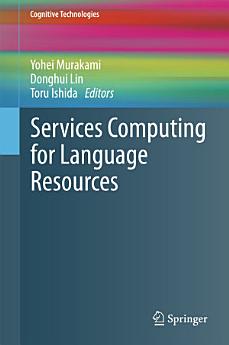Services Computing for Language Resources
eBook 정보
The research based on the authors’ operating experiences of handling complicated issues such as intellectual property and interoperability of language resources contributes to exploitation of language resources as a service. On the other hand, both the analysis based on using services and the design of new services can bring significant results. A new style of multilingual communication supported by language services is worthy of analysis in HCI/CSCW, and the design process of language services is the focus of valuable case studies in service science. By using language resources in different ways based on the Language Grid, many activities are highly regarded by diverse communities.
This book consists of four parts: (1) two types of language service platforms to interconnect language services across service grids, (2) various language service composition technologies that improve the reusability, efficiency, and accuracy of composite services, (3) research work and activities in creating language resources and services, and (4) various applications and tools for understanding and designing language services that well support intercultural collaboration.
저자 정보
Donghui Lin received his Ph.D. degree in informatics at Kyoto University in 2008. He is an assistant professor of Kyoto University. His research interests include services computing, intercultural collaboration, and artificial intelligence.
Toru Ishida has been a professor of Kyoto University since 1993. His research interest is in autonomous agents and multiagent systems. He also worked on Digital City Kyoto and Intercultural Collaboration. Since 2006, he has been running the Language Grid project.





